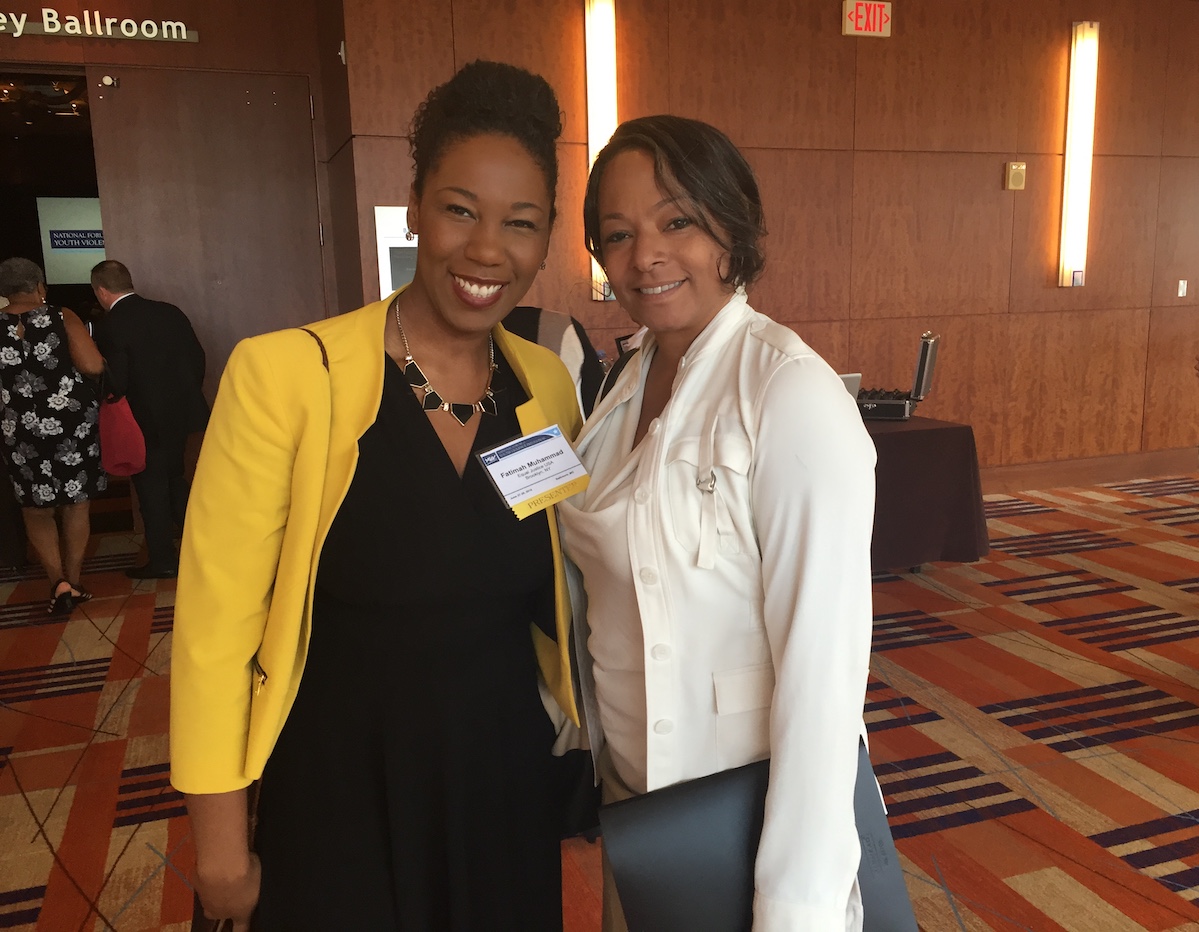
Recently I spoke to Wanda Moore, an Assistant Attorney General in New Jersey and the Director of the Office of Community Justice, about her work to reduce trauma and violence through positive youth development programs, community-based crime prevention strategies, and system wide change. Ms. Moore leads cutting-edge, place-based solutions work in several cities in New Jersey including Trenton, Jersey City, and Newark. She attended EJUSA’s 2-day trauma train-the-trainer for criminal justice professionals in April, made possible by the generous support of the Healthcare Foundation of New Jersey.
(Note: This interview has been edited and condensed for clarity.)
Fatimah Loren Muhammad: Thank you so much for speaking with me. What does a trauma-responsive justice system mean to you?
Wanda Moore: The overwhelming majority of people in the system are in the system because of some trauma they have experienced and their inability to cope with it. As a result, they may be using drugs, not taking care of themselves, or their mental health status may be impacted.
If I take the system of incarceration – which says, “Now the cost you are going to pay for this is 3-5 years, and I put it aside for the moment, something powerful is possible. Instead, if the Court and the legal professionals ask, “what happened to you?” then we can use our best data and evidence to develop a plan that can help them. At the same time, we can relay the message that this behavior is not appropriate, but since your trauma is driving it, here is what we can do to help. This is where being trauma informed improves criminal justice system responses.
When we understand context, we can realign resources. From my experience with drug courts, I watched as our response to treatment and being clinically driven changed the system. The whole system then changes because it becomes driven by the science of what we know around trauma. It becomes driven around responses that make more sense, and limited resources become more effective. We literally can change the world by making the criminal justice system more trauma-informed. That will impact other systems by making them more forward thinking and results driven.
FLM: In Newark, you participated in EJUSA’s trauma train-the-trainer, which was the first step in our larger project to support Newark Police Department and community leaders to identify trauma-informed responses to violence. What did you take away from that training?
WM: For awhile, I felt like we were not hearing one another. But then there was this moment where everyone began to listen and understand each other. You have got to hear one another for this to work. All of the stakeholders – faith leaders, public health, community violence prevention folks, victims – were very interested in hearing law enforcement’s perspective and likewise.
I’m very hopeful. Law enforcement is and wants to be more involved in the community and attributes value in being more trauma-informed. You heard the officers – some of them were born and raised in Newark and questioned when did they become the enemy? People needed to hear that. They wanted to convey the message that “I am you.” I have had the same or similar experiences.
Recently, I incorporated portions of the training in a workshop I facilitated at the National Consortium on Racial and Ethnic Fairness in the Courts. The concept connected with attendees in the breakout groups. This was a great exercise with the judicial staff. They started to engage in dialogue regarding trauma like you and I would.
FLM: That sounds incredible. And you do so much more in the state of New Jersey. Tell me more about your work statewide on trauma and the cycle of violence.
WM: I am working on aligning federal, state, and municipal resources so that there is effective coordination and common goals. I promote collective impact by working across many cities (about 13) and focus on local youth planning and policy boards. We have to be creative about how to reach the “at-risk” or opportunity youth because they aren’t disconnected – we are.
My office is committed to bringing actual community change. We work toward outcomes and evaluate our performance. We stay connected to grassroots efforts. In the communities that we engage, we work to connect all the dots. If we are not changing systems or policies, we are not going to have lasting impact.
FLM: What trauma work is happening in the state that most excites you?
WM: I’m very excited about all of the great work on the topic. EJUSA is doing great work. Hopeworks in Camden is doing great work by engaging youth to address trauma. The Trenton Health team is doing great work helping the nonprofit community become trauma-informed. Professor David Troutt, Director at the Center on Law in Metropolitan Equity at Rutgers Newark co-hosted with us a roundtable of trauma experts in April 2016 to talk about trauma and education, which was highly informative. Other partners, like the Robert Wood Johnson Foundation, are supporting these efforts.
What is most exciting is that New Jersey is moving towards its own trauma-informed system of care. For example, Boston, Massachusetts has moved forward with their model of trauma-informed care. Under the leadership of Courtney Grey of the Boston Health Department, their trauma-informed care model embraces grassroots level of community engagement. I am inspired by the work of Mr. Grey, Joshua Durand, and many others. I am excited about developing a similar trauma-informed care model at the grassroots level within our state. My goal is to bring together our government partners with trauma-informed providers on the ground to create community-wide trauma-informed responses. I am delighted to have this opportunity to move this work forward in New Jersey.



